Boxing Day dippers brave chilly North Sea
- Published
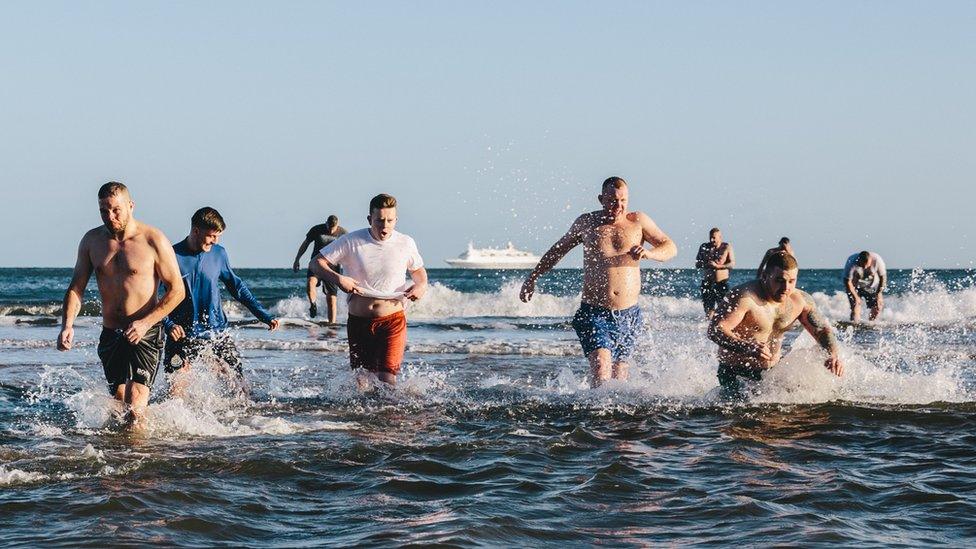
The many north-east coast Boxing Day dips included one at Tynemouth
Thousands of people have taken part in Boxing Day dips in the sea along the north-east of England coast.
Dippers have been braving the chilly waters at Berwick, Newbiggin-by-the-Sea, Blyth, Tynemouth, South Shields, Seaham, Seaburn and Redcar.
Many were raising money for charity dressing as Santa Claus, Christmas trees, snowmen, penguins and assorted animals.
Temperatures in the North Sea were estimated to be about 9.5C (49F).
The dips are an annual tradition. One of the largest, organised by Sunderland Lions Clubs, has been held since 1974.
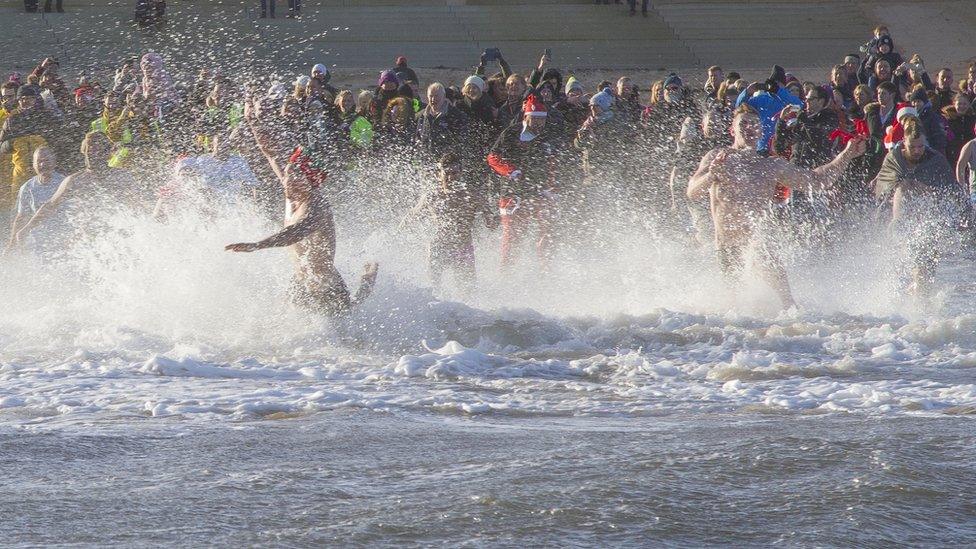
About 270 "brave souls" cavorted in the sea at Redcar for a dip organised by Redcar Rotary Club
Organiser Peter Fielding said there had been 863 dippers this year raising more than £47,000.
At Little Haven Beach in her home town of South Shields, Jade Thirlwall from the pop band Little Mix waded into the waves in fancy dress.
"We're all crazy but it's definitely worth it to raise some money, some awareness," she said.
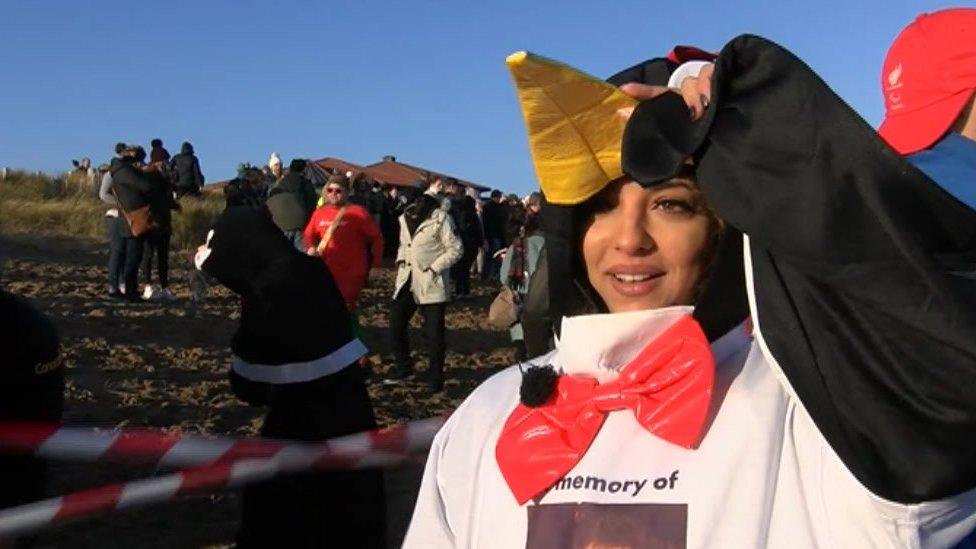
Little Mix's Jade Thirlwall was raising money for local charity Cancer Connections
Donna Robson, the chairman of North Sea Volunteer Lifeguards (NSVL), which organised a dip at Tynemouth Longsands, said although the water temperature was not as low as it could have been, the wind made it a "bit nippy".
Participants raising funds for NSVL included a bride and groom and a snowman.
"In previous years we've had mankinis, which wasn't very nice to look at," she said.
They limit time in the water to 15 minutes for safety reasons but most were out after 10 because "with the wind and everything it was quite chilly", she said.
The first NSVL dip took place in 1999.
"It started off originally as a few lifeguards getting together after Christmas and it's just got bigger and bigger," she said.
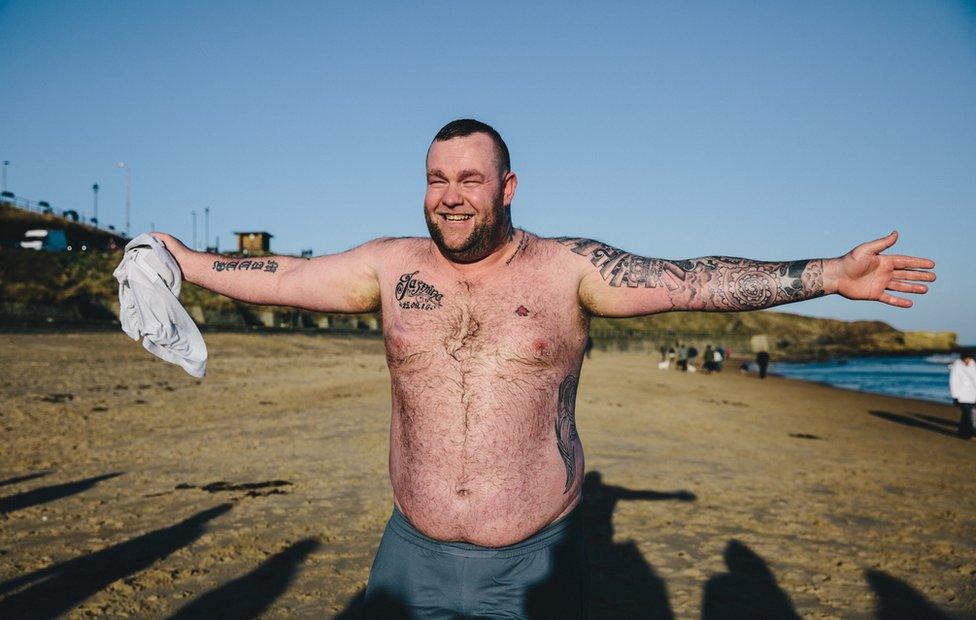
Some Tynemouth dippers were raising money for four-year-old Kian Musgrave who has neuroblastoma and who, earlier this year, was given £25,000 by Simon Cowell
St Clare's Hospice fundraising manager Vanessa Middleton said they had had about 120 dippers, including a Donald Trump, some Bob the Builders, a few Santa Clauses, a number of elves and one man dressed as a fairy.
Lifeguards were on hand to keep everyone safe and all the dippers were counted in and out of the water, she said.
"Though it's rare that anyone needs help - most run in to the water as far as their knees and run out again," she said.
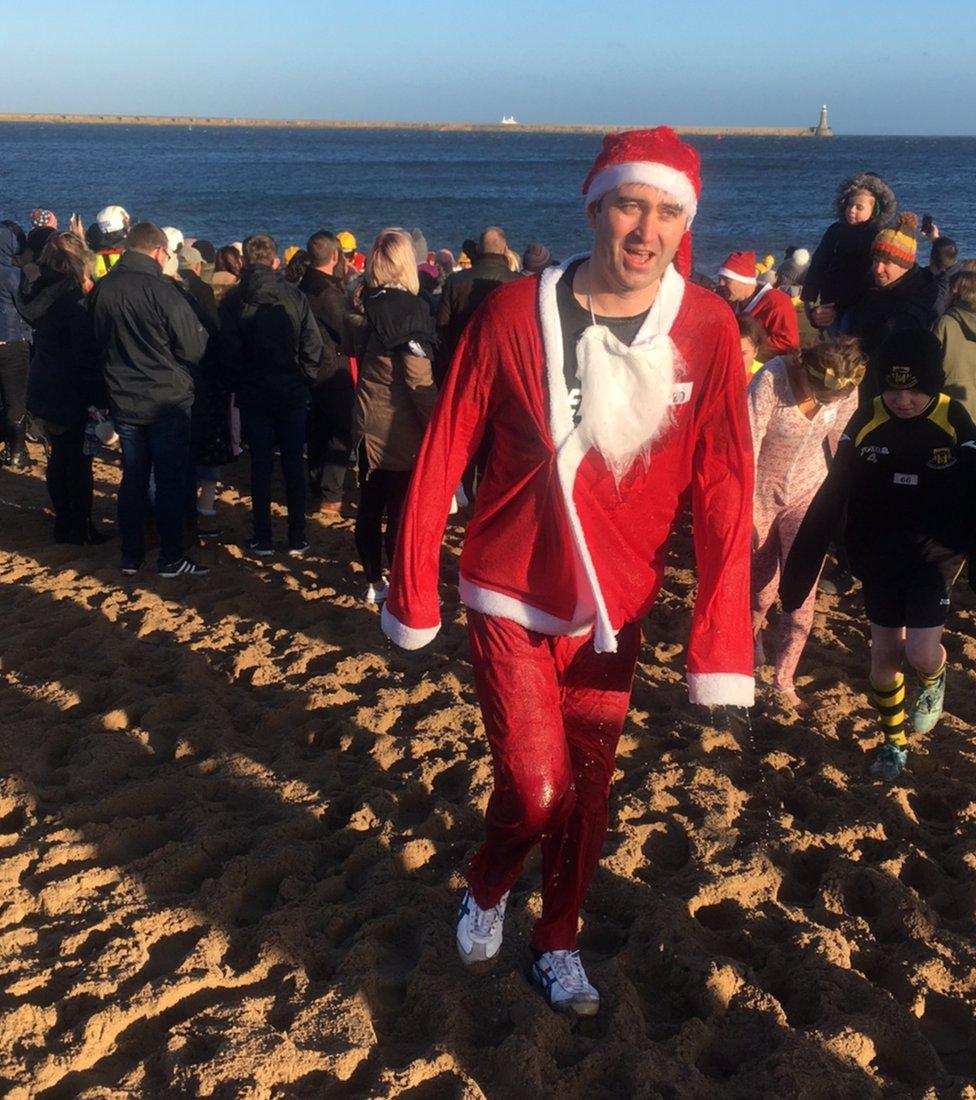
Whether fancy dress costumes are good for keeping dippers warm or bad for absorbing cold North Sea water is a matter of debate
Most are raising money because they have a personal connection to the hospice.
"It's a way for people to give something back, to bring some positivity out of something that could have been quite sad," Ms Middleton said.
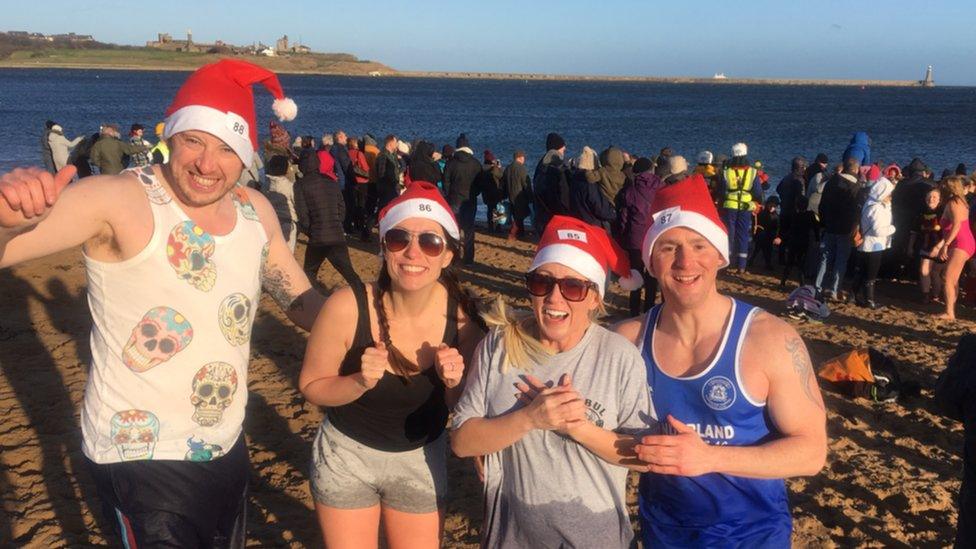
About 120 dipped to raise money for St Clare's Hospice in South Shields
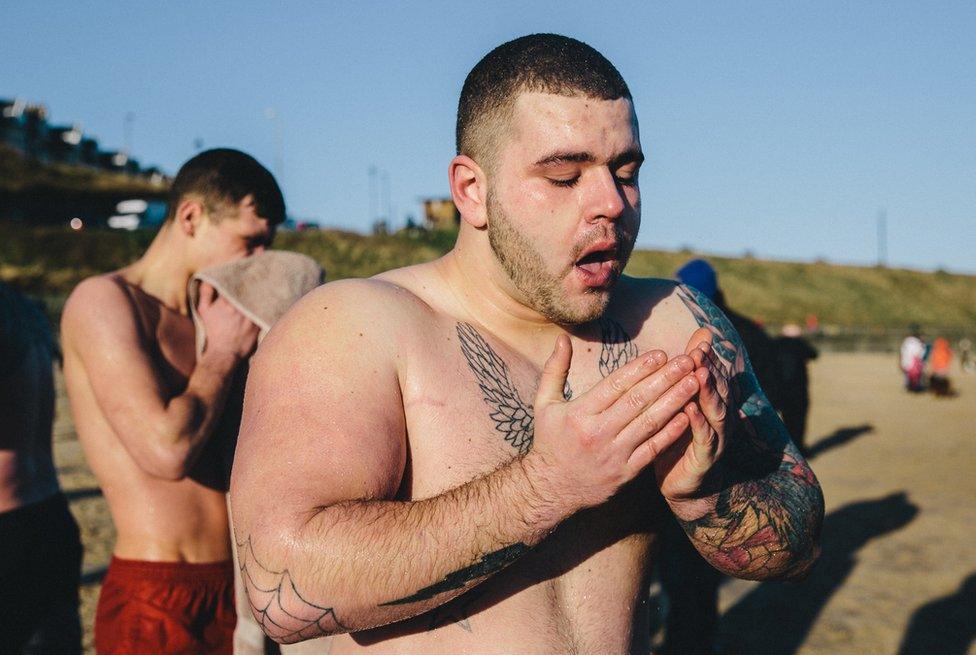
The temperature in the water was about 9.5C (49F) but the wind added a chill to proceedings
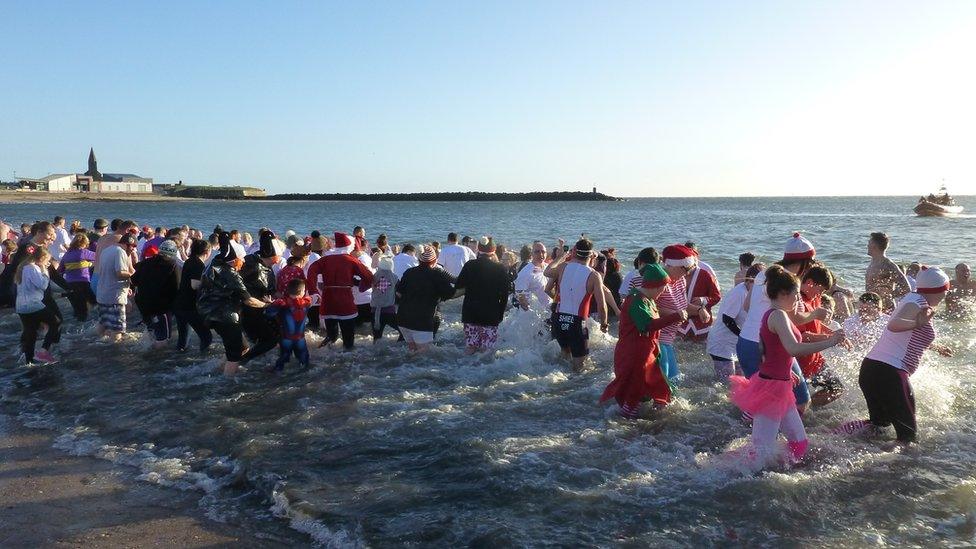
It was still nippy in Newbiggin-by-the-Sea, despite the sun
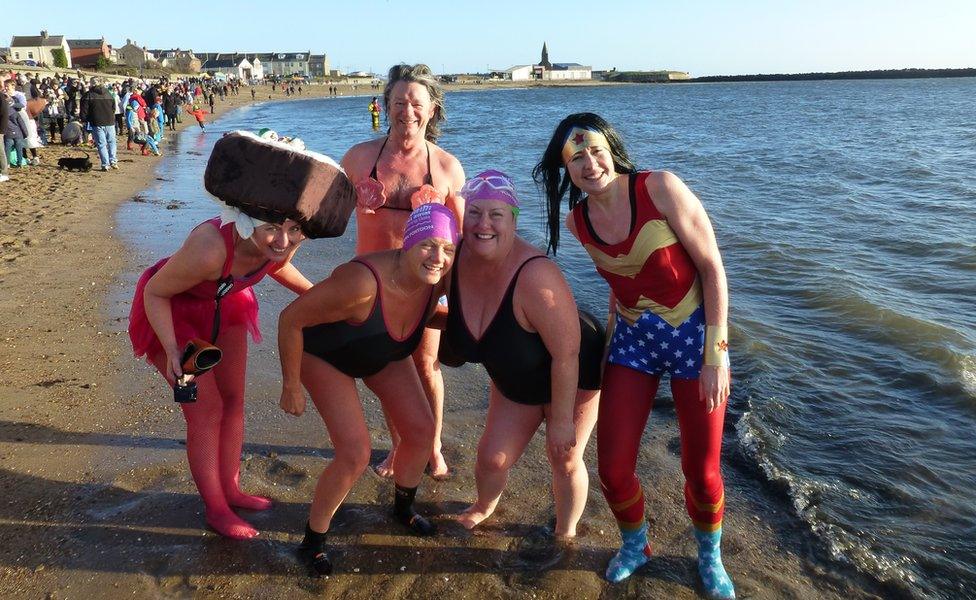
But what is a little thing like the cold when you are a superhero? Or wearing a cake on your head?
- Published27 December 2015
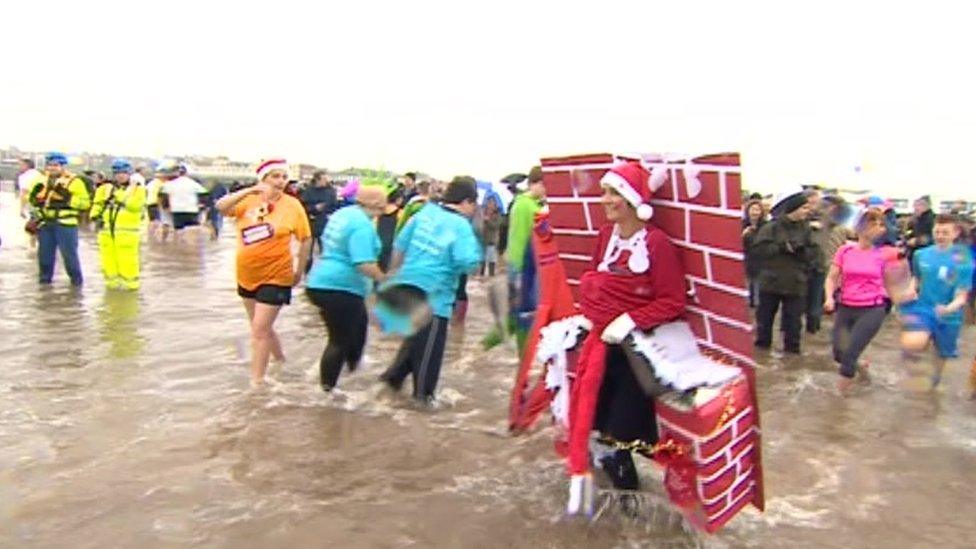
- Published26 December 2014
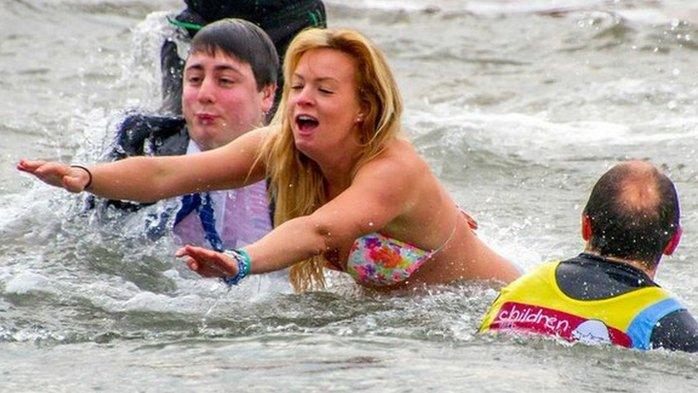
- Published26 December 2013